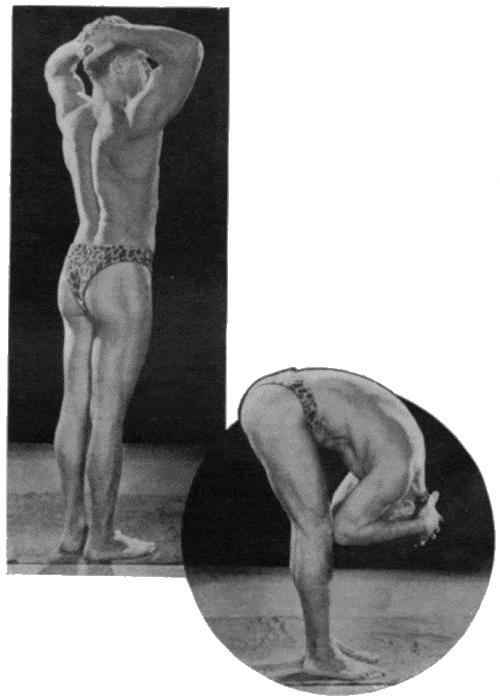
For as long as I can remember, I’ve listened to music while working out.
When I lifted weights with my football team back in high school, Metallica and DMX usually blared over the crappy PA system in our dank weight room.
When the iPod came on the market while I was in college, I created a workout playlist consisting of an eclectic mix of indie rock and Rage Against the Machine.
When I got my garage gym, I put a Sonos speaker in it so I could crank up the tunes while I lifted weights. Over the years, my workout playlist changed. I had a Rage Against the Machine phase early on in my garage gym years. When I got tired of that, I went through an ‘80s hairband phase and a Taylor Swift phase. I passed through a period heavy on the Bleachers. There was even a time when all I listened to were the soundtracks of 1980s cop shows.
While the soundtrack of my regular training sessions changed, I always blasted The Killers when I was going for a PR. Specifically, “All These Things I’ve Done.” I don’t know how many PRs I’ve hit while Brandon Flowers was chanting “I got soul, but I’m not a soldier” in the background.
Music and exercise were inseparable for me.
That is, until this past year. I can’t remember the last time I had music playing in the background while I exercised.
And, strangely enough, I’m digging the silence. Here’s why you might hit the off button on your audio player too.
The Case for Working Out Without Music (or Podcasts)
When you see people working out, 95% of the time, they’ve got headphones on. And the near universality of listening to music during exercise isn’t too hard to understand.
As Daniel Lieberman pointed out in our recent interview about the evolution of exercise, the idea of lifting weights or going for a run, for no other purpose than to lift weights or go for a run, is an incredibly modern, and really, when you think about it, quite weird phenomenon. It takes effort, and is kind of boring, and doesn’t always have an immediate reward. So it’s hard for us humans to always get real jazzed to do it. As a result, we naturally reach for anything to give us a boost of motivation and distract us from the tedious task at hand.
Music empirically delivers. In our podcast with Kelly McGonigal about her book The Joy of Movement, she highlighted research which shows that music can help you work out harder and longer. Specifically, music with a tempo of 120 to 140 beats per minute appears to be the most motivating, with songs with lyrics about fighting and pushing yourself physically and psychologically (rather than love) being especially animating. When you listen to music that hits this matrix, it can have a true “power up” quality that allows you to grab the workout bull by the horns.
Yet, while this represents a significant benefit to working out to music, there are potential benefits to breaking from the pack and exercising without it too:
Renewal through silence. Our lives are filled with noise from the time we wake up until the time we go to sleep at night. Not just audible noise, but the entire cacophony of human-created stimuli that fills our screens and clutters our minds. Moments of real quiet, absences of inputs, are few and far between.
Workouts are an excellent time to carve out rare interludes of silence. To be present and alone with your thoughts, with the only sound the clanging of weights and the rhythm of your breath. Such silence brings a renewing, settling stillness to your mind. The effect can be reattuning and clarifying; as the monk Thomas Merton put it:
Not all men are called to be hermits, but all men need enough silence and solitude in their lives to enable the deep inner voice of their own true self to be heard at least occasionally.
A garage gym or running path makes for an excellent cloister.
Boost to problem-solving creativity. Silence is its own benefit, but it can also bring forth more tangible and even remunerative advantages.
While some research has shown that music may boost one’s divergent thinking — the ability to brainstorm new, original ideas — the preponderance of studies has shown that music inhibits creativity overall. This is particularly true when it comes to convergent thinking, wherein you narrow down your cloud of ideas to a single, correct problem-solving solution, and especially when that solution requires the reception of an insight. Ironically, convergent thinking is precisely the kind of creativity that’s found to be enhanced through exercise. Essentially then, listening to music while working out negates one of exercise’s unique benefits.
So while working out with music might help goose your more free-flowing thoughts, allowing random ideas to pop into your head, if you’re looking for more specific, concrete insights into your personal and professional problems, exercising in silence is the way to go.
I personally don’t do much creative thinking of any type when I’m lifting weights; I actually like the way my mind kind of goes blank. But Kate often composes articles while on silent trail runs, getting insights into specific ways to word things. The difference may have something to do with the difference in dynamics between resistance training and steady-state cardio.
Greater efficiency. One of the downsides of listening to music (and especially podcasts) while exercising, is that they can make your workouts take longer than necessary.
As Alex Hutchinson pointed out in our podcast in which he answered a bunch of exercise-related FAQ, there are studies that show music can be a distraction when you exercise: “If you’re listening to a podcast or music that you’re really, really into, you’re likely to slow down and take it easy unconsciously.” Everyone knows the phenomenon of feeling like you’re effectively multitasking when you’re listening to a podcast while doing a household chore, only to find that the chore actually took twice as long, as the attention you lent to the audio subconsciously slowed your movements.
The distractibility of music is probably the biggest driver behind why I stopped listening to it while lifting weights. I just started to find that it hurt more than helped.
Instead of taking my time listening to music in between sets or fiddling with my playlist, when I’m lifting to the sound of silence, I just get in, do my work, and get out. A workout that I’d let drag out for 75 minutes gets done in 60.
Whether or not you listen to music/podcasts during your workout will, of course, ultimately come down to personal preference and what you find works for you. To add a little variety and texture into your exercise routine, you might consider cranking up the tunes for some workouts, but not others; e.g., listen to music while doing cardio, but lift weights in silence; or listen to music while lifting weights, but not during your rucks.
You also might consider using music in your workouts in the same way that it’s optimal to use caffeine: as an extra boost to keep in your back pocket for occasions when you really need it. I’ll probably crank up the tunes again the next time my motivation is seriously dragging and I need an additional power-up push. I mean, I’ve got soul, but I’m not a soldier.







